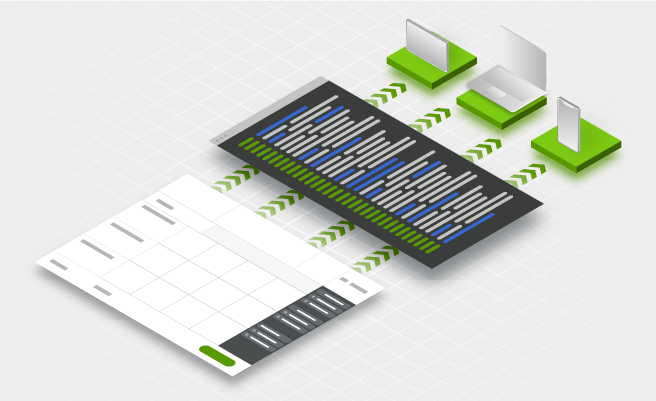Best CMS for Developers: Unlocking Efficiency & Creativity
The best CMS for developers is WordPress due to its flexibility and extensive plugin ecosystem. Other strong contenders include Drupal and Joomla, known for their customizability and scalability.
Choosing the right Content Management System (CMS) is crucial for developers. A suitable CMS streamlines workflows and enhances productivity. Developers often seek platforms that offer robust features, customization options, and community support. WordPress stands out with its vast range of plugins and themes, making it ideal for various projects.
Drupal excels in managing complex content structures, while Joomla balances ease of use and flexibility. Understanding the specific needs of a project can guide developers in selecting the best CMS. This choice significantly impacts website performance and user experience, making it essential to evaluate options carefully.
Key Features To Consider
Choosing the best CMS is crucial for developers. Consider these key features to ensure optimal performance and usability.
Customizability And Flexibility
Customizability allows developers to tailor the CMS to specific needs. Flexibility enables easy changes as requirements evolve.
- Look for themes and templates.
- Check for plugin options.
- Ensure easy code modifications.
Some popular CMS options offer extensive customization. Others may have limited options. Evaluate based on project goals.
Security Measures And Support
Security is vital for any CMS. A secure system protects data from threats.
| Feature | Importance |
|---|---|
| Regular updates | Fix vulnerabilities quickly. |
| User roles and permissions | Control access effectively. |
| Backup options | Prevent data loss. |
Evaluate the support options available. Good support is essential for troubleshooting and assistance.
Integration With Other Tools
Integration enhances functionality. A CMS should work with various tools seamlessly.
- Check for compatibility with analytics tools.
- Look for e-commerce integration.
- Ensure support for social media tools.
Effective integration boosts productivity. It streamlines workflows and enhances user experience.
Popular Cms Platforms For Developers
Many developers rely on Content Management Systems (CMS) to build websites. Each platform offers unique features and benefits. Here are some of the most popular CMS options for developers.
WordPress: The Ubiquitous Choice
WordPress powers over 40% of all websites. It is user-friendly and highly customizable. Key features include:
- Large Plugin Library: Thousands of plugins extend functionality.
- Themes: A wide variety of themes for design flexibility.
- SEO Friendly: Built-in features to improve search rankings.
WordPress suits both small blogs and large e-commerce sites. Developers appreciate its strong community support. Learning resources are abundant, making it easy to get started.
Drupal: For Complex Sites
Drupal is ideal for complex websites. It excels in flexibility and scalability. Key attributes include:
- Custom Content Types: Create tailored content structures.
- Advanced User Permissions: Control access at a granular level.
- Robust Security: Strong measures against vulnerabilities.
Many government and enterprise sites use Drupal. It requires a steeper learning curve but rewards with powerful features. Developers who need extensive customization prefer Drupal.
Joomla: Balancing Simplicity And Power
Joomla strikes a balance between user-friendliness and advanced features. It offers flexibility for various types of websites. Key aspects include:
- Multilingual Support: Built-in options for multiple languages.
- Community Extensions: Access to numerous third-party extensions.
- SEO Tools: Features to optimize site visibility.
Joomla is suitable for e-commerce, social networks, and more. Its ease of use attracts developers looking for efficiency. Users can create complex sites without extensive coding.
Headless Cms: A New Era
Headless CMS represents a shift in content management. It separates the back-end from the front-end. This allows developers to create flexible and innovative solutions. With a headless CMS, the content can be delivered anywhere.
Decoupling The Backend From The Frontend
In traditional CMS, the backend and front end are tightly linked. A headless CMS changes this by decoupling them. This means:
- Developers can use any technology for the front end.
- Content can be displayed on various platforms.
- Designers can focus on user experience without backend restrictions.
APIs play a crucial role in this setup. They connect the content stored in the backend to any frontend interface.
Benefits Of Going Headless
Choosing a headless CMS offers numerous benefits:
| Benefit | Description |
|---|---|
| Flexibility | Use any technology stack for front-end development. |
| Scalability | Handle increased traffic easily with API calls. |
| Faster Development | Developers can work simultaneously on different components. |
| Omnichannel Experience | Deliver content across websites, apps, and devices. |
Headless CMS also enables better performance. Content loads faster and enhances user engagement.
In this new era, developers can innovate freely. They focus on creating the best experience for users.
Cms For E-commerce Development
Choosing the right CMS for e-commerce is crucial. It impacts your online store’s success. A good CMS simplifies product management, payments, and customer service. Let’s explore two popular options: Shopify and Magento.
Shopify: A One-stop Shop
Shopify is a leading platform for e-commerce. It caters to small and medium-sized businesses. Here are some key features:
- User-Friendly Interface: Easy for beginners to navigate.
- Customizable Templates: Choose from many themes.
- Integrated Payment Gateway: Accept payments easily.
- Mobile Optimization: Works well on smartphones.
Shopify offers various pricing plans. You can start small and grow. It supports over 100 payment options. This flexibility helps you reach more customers.
Magento: Scalability For Large Stores
Magento is perfect for larger businesses. It handles complex e-commerce needs. Here are its standout features:
- High Scalability: Manages large inventories effortlessly.
- Custom Development: Tailor your store to your needs.
- Robust Security: Protects customer data effectively.
- SEO-Friendly: Helps improve your search rankings.
Magento requires more technical knowledge. It suits businesses ready to invest. Choose Magento for flexibility and advanced features.
Cms And Seo: Maximizing Visibility
Choosing the right CMS can boost your website’s visibility. A well-optimized CMS helps attract more visitors. It simplifies the process of improving search engine rankings.
Built-in Seo Features In Cms
Many CMS platforms come with built-in SEO tools. These features help manage metadata, URLs, and sitemaps. Here are some common built-in SEO features:
- Customizable Meta Tags: Edit title and description for each page.
- SEO-Friendly URLs: Create clean and descriptive URLs.
- Automatic Sitemaps: Generate sitemaps for search engines.
- Image Alt Tags: Add alt text for better image indexing.
These built-in tools save time and enhance your site’s SEO.
Custom Seo Plugins And Extensions
Plugins and extensions offer advanced SEO capabilities. They help optimize your site even further. Popular SEO plugins include:
| Plugin | Features |
|---|---|
| Yoast SEO |
|
| All in One SEO Pack |
|
| SEMrush |
|
Using these plugins can greatly improve your site’s SEO performance.

Credit: agilitycms.com
Case Studies: Successful Cms Implementations
Real-world examples show how developers use CMS platforms. These case studies highlight the benefits and efficiencies gained. They illustrate the power of choosing the right CMS.
Real-world Developer Experiences
Many developers share their success stories. Here are a few notable examples:
- Company A: Used WordPress for a fast blog setup. They increased their traffic by 150% in six months.
- Company B: Choose Drupal for a complex eCommerce site. They reported a 40% boost in sales.
- Company C: Implemented Joomla for community forums. Their user engagement doubled within three months.
These cases show how the right CMS can transform projects. Developers appreciate the ease of use and customization options.
Performance And Growth Metrics
Performance and growth metrics are vital for success. Below is a table summarizing key metrics from the case studies:
| Company | CMS Used | Traffic Growth (%) | Sales Increase (%) |
|---|---|---|---|
| Company A | WordPress | 150% | N/A |
| Company B | Drupal | N/A | 40% |
| Company C | Joomla | N/A | N/A |
These metrics showcase the effectiveness of each CMS. Developers can clearly see the impact on their projects. Choosing the right system leads to better results.
Many developers emphasize the importance of analytics. Tracking performance helps in making informed decisions. Regular updates on metrics keep projects aligned with goals.
Future Trends In Cms Development
The future of Content Management Systems (CMS) is bright and exciting. Developers are constantly innovating. They focus on improving user experiences and efficiency. Here are some key trends shaping CMS development.
Ai Integration In Cms
Artificial Intelligence (AI) is transforming CMS platforms. It enhances content creation and management. Here are some benefits of AI integration:
- Smart Content Recommendations: AI analyzes user behavior. It suggests relevant content.
- Automated Tagging: AI tags content automatically. This saves time and effort.
- Enhanced SEO: AI helps optimize content for search engines.
- Chatbots: AI-powered chatbots assist users 24/7.
AI integration leads to better decision-making. Developers can build more intelligent systems. Users enjoy personalized experiences.
The Rise Of Personalization And Content Automation
Personalization is becoming essential in CMS development. Users want content tailored to their interests. Here are some trends in personalization:
| Trend | Description |
|---|---|
| User Segmentation | Group users based on behavior and preferences. |
| Dynamic Content | Content changes based on user interactions. |
| Automated Workflows | Streamline content creation and publishing processes. |
Content automation tools enhance efficiency. They reduce manual tasks and improve accuracy. Developers can focus on high-quality content creation.
Both AI integration and personalization drive CMS evolution. Developers must embrace these trends. They will shape the future of content management.
Choosing The Right Cms
Choosing the right CMS is vital for developers. A good CMS meets business needs and supports future growth. It should also be easy to manage and customize.
Matching Business Needs With Cms Capabilities
Understand your business goals first. Then, align them with CMS features. Here are key features to consider:
- Scalability: Can the CMS grow with your business?
- Customization: How easy is it to change templates and plugins?
- SEO Tools: Does it offer built-in SEO features?
- Content Management: Is it user-friendly for non-developers?
- Integration: Can it connect with other tools?
Evaluate these features carefully. The right fit enhances workflow and productivity.
Community Support And Developer Ecosystem
A strong developer community adds immense value. Check for:
- Active Forums: Are there many discussions and solutions?
- Documentation: Is the documentation clear and comprehensive?
- Plugins and Themes: Are there enough available options?
- Regular Updates: Is the CMS regularly updated and maintained?
Community support improves problem-solving. A vibrant ecosystem leads to more plugins and tools.
| CMS | Scalability | Community Support |
|---|---|---|
| WordPress | High | Excellent |
| Drupal | Very High | Strong |
| Joomla | Moderate | Good |
Choosing the right CMS ensures smooth development. Assess business needs and community support carefully.

Credit: www.magnolia-cms.com
Frequently Asked Questions
What Is The Best Cms For Developers?
The best CMS for developers often depends on specific needs, but popular choices include WordPress, Drupal, and Joomla for flexibility.
Which Cms Is Easiest For Developers?
WordPress is widely considered the easiest CMS for developers due to its user-friendly interface and extensive plugin ecosystem.
How Do I Choose A Cms For Development?
Consider factors like scalability, customization options, community support, and ease of use when selecting a CMS for development.
What Features Should A Cms Have For Developers?
A good CMS should offer customization, strong security, an active community, and robust API support for seamless integrations.
Is A Headless Cms Better For Developers?
A headless CMS can be better for developers, allowing for greater flexibility in using different front-end technologies and frameworks.
Conclusion
Choosing the right CMS is crucial for developers. The best options offer flexibility, scalability, and robust support. Each platform has unique features tailored to different needs. Take time to evaluate your project requirements. The right CMS can streamline your workflow and enhance your productivity, ultimately leading to successful project outcomes.





